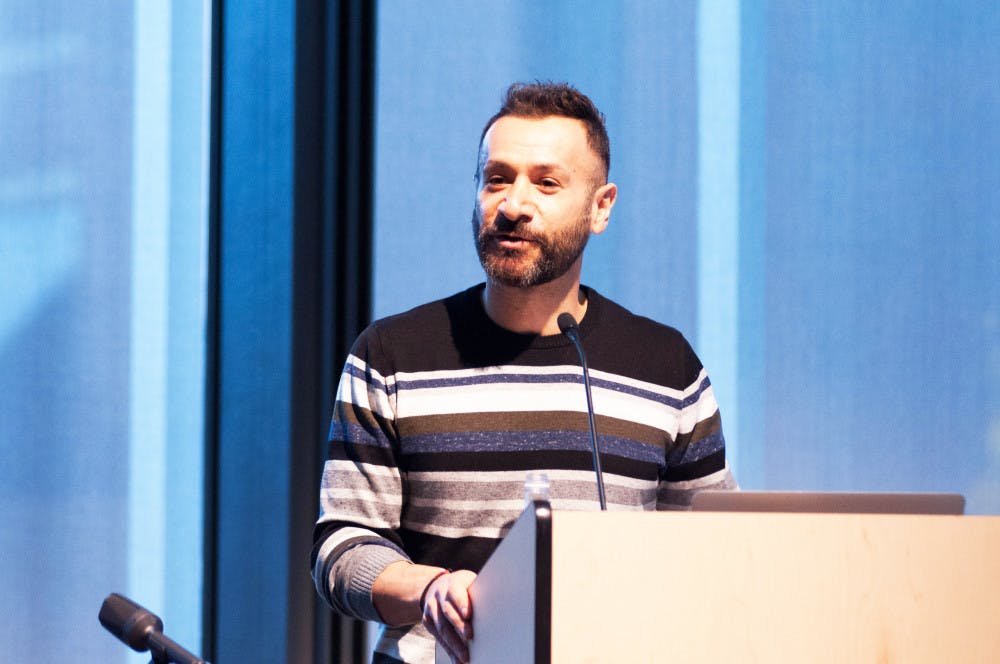The Brown Arts Initiative and the Jonathan M. Nelson Center for Entrepreneurship at Brown collaborated to host a series of lectures called “Music, Tech and Entrepreneurship: A Creative Workshop” this Sunday.
The series aimed to reflect the intersections between entrepreneurial ideals and the artistic world and music industry, said Joseph Butch Rovan, director of the Brown Arts Initiative and professor of music. The program featured presentations from Rovan himself, Steven Schwartz ’91, Arvid Tomayko-Peters ’07, Prachi Jain ’16, Professor of Physics Stephon Alexander PhD’00 and Executive Director of the Center for Entrepreneurship Daniel Warshay ’87. Professor at the Rhode Island School of Design Charlie Cannon and composer Melvin Gibbs were featured, and Managing Director of the Berklee Institute for Creative Entrepreneurship Panos Panay delivered the keynote speech.
As part of President Barack Obama’s declared National Entrepreneurship Month, “We wanted to focus on telling stories of entrepreneurship, scholarly research and the latest technologies in music,” said Elizabeth Malone, program manager for the Center for Entrepreneurship. “We want to show, tell and apply.”
The collaborative series has been in the works since “the very first meeting after (Warshay) was announced as director,” Rovan said. Rovan and Warshay had previously collaborated to develop the plans for the Center for Entrepreneurship as both were “interested in entrepreneurship and the arts and how they connect.”
Rovan has long been interested in programming on business and the arts due to his “own background as a composer and musician who has also worked in Silicon Valley,” he said.
Rovan tried to illuminate the range of professional options available to arts students when he was chair of the music department, he said. He cited the development of classes in music business and summer high school entrepreneurship programs such as B-Lab, a collaborative effort between Brown and the Berklee College of Music.
“Entrepreneurship has always been alive and well in the art community before the Nelson Center. All of these entities were a precursor to the series,” Rovan added. “There has been a long, slow process for developing this. Now we have reached the next level and are much more focused on supporting this relationship.”
The lecture series fits well with the Center for Entrepreneurship’s purpose on campus, Malone said. “The center wants to collaborate with departments in which entrepreneurship isn’t commonly practiced or doesn’t readily come to mind. This is why we wanted to show how to apply entrepreneurial skill sets to the arts.”
Hopeful for continued cooperation between the two organizations, Rovan predicts future lecture series. “Today represents that there are future possibilities for collaborations,” Rovan said. “We are bringing this collaboration to the forefront. These organizations are closely intertwined, and their collaboration is the most natural progression.”





